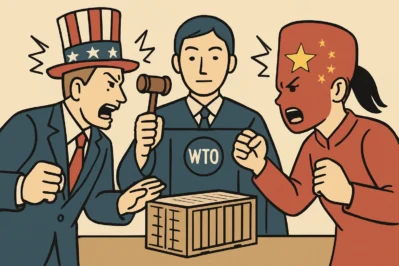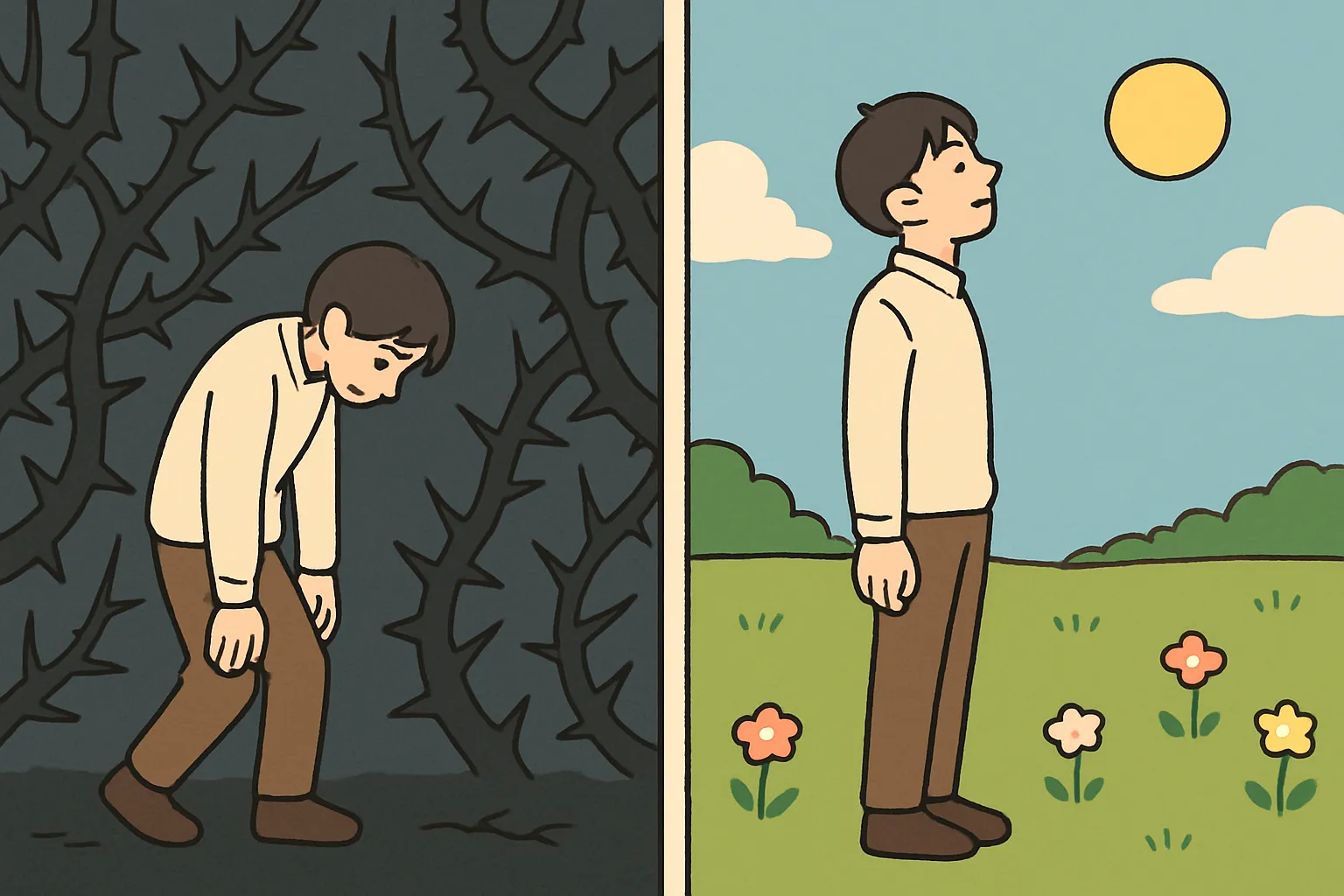From K-Dramas to K-Trade: Talking WTO Disputes in Korean!
Hello! This is [Maeil Hangeul], here to upgrade your Korean skills!
Have you ever watched the Korean news and felt a little lost when they started discussing global economics? Or maybe you’re in the business world and want to discuss complex topics with your Korean colleagues. Well, you’re in luck! Today, we’re going to tackle a challenging but super useful topic: how to talk about the World Trade Organization’s (WTO) dispute settlement process.
Lately in Korea, there’s been a lot of news about international trade, from disputes over semiconductors to arguments about subsidies for electric cars. Understanding the key phrases used in these discussions will not only boost your vocabulary but also give you a deeper insight into Korea’s role in the global economy. Let’s level up your professional Korean!
Core Expressions You Need to Know
Here are the essential terms to master when discussing trade agreements and disputes.
- 분쟁 해결 (Bunjaeng Haegyeol)
- Pronunciation: [boon-jaeng hae-gyeol]
- English Meaning: Dispute settlement / Dispute resolution
- Detailed Explanation: This is the core phrase for the entire topic! 분쟁 (Bunjaeng) means ‘dispute’ or ‘conflict,’ and 해결 (Haegyeol) means ‘solution’ or ‘resolution.’ This term is formal and is used in legal, political, and business contexts to refer to the official process of resolving a disagreement between parties, in this case, countries.
- 제소하다 (Jesohada)
- Pronunciation: [je-so-ha-da]
- English Meaning: To file a complaint / To sue / To bring a case against
- Detailed Explanation: This is a key action verb in any dispute. When one country believes another has violated WTO rules, they can formally 제소하다. It’s a formal, legal term you will frequently see in news headlines. For example: “한국, OO 문제로 WTO에 제소” (Korea files a complaint with the WTO over the OO issue).
- 상소하다 (Sangsohada)
- Pronunciation: [sang-so-ha-da]
- English Meaning: To appeal
- Detailed Explanation: What happens if a country doesn’t agree with the initial ruling? They 상소하다! This means to take the case to a higher authority for review. It’s the next logical step in the legal process. This word is also used in regular domestic court cases, but it’s essential for understanding the multi-stage WTO process.
- 보복 관세 (Bobok Gwanse)
- Pronunciation: [bo-bok gwan-se]
- English Meaning: Retaliatory tariff
- Detailed Explanation: This is a powerful tool in trade disputes. 보복 (Bobok) means ‘retaliation’ or ‘revenge,’ and 관세 (Gwanse) means ‘tariff.’ If a country wins a case and the other country doesn’t comply with the ruling, the winning country may be authorized to impose 보복 관세 on the other’s goods. It’s a very strong measure and often signals a serious escalation in a trade conflict.
Example Dialogue
Let’s see how these terms are used in a real conversation. Two colleagues, Mina and Chris, are discussing a news article during their coffee break.
A (Mina): 크리스 씨, 오늘 아침 뉴스 봤어요? 미국이 유럽연합을 상대로 전기차 보조금 문제 때문에 WTO에 제소할 거래요.
(Chris, did you see the news this morning? It says the U.S. is going to file a complaint against the EU at the WTO over electric car subsidies.)
B (Chris): 아, 정말요? 그 문제가 WTO 분쟁 해결 절차까지 가게 될 줄은 몰랐네요.
(Oh, really? I didn’t realize that issue would go all the way to the WTO’s dispute settlement process.)
A (Mina): 맞아요. 만약 판결이 나고도 한쪽이 따르지 않으면, 보복 관세를 부과할 수도 있대요.
(That’s right. They say if one side doesn’t comply even after a ruling, they could even impose retaliatory tariffs.)
B (Chris): 와, 상황이 심각해질 수도 있겠네요. 결과가 어떻게 나올지 지켜봐야겠어요.
(Wow, the situation could get serious. We’ll have to wait and see how it turns out.)
Culture Tip & Trend Deep Dive
“Sound Like a Pro, Not Just a Fan!”
In Korea, being up-to-date on economic news is often seen as a sign of being well-educated and professional. When you hear discussions about trade on Korean news channels like YTN or KBS, listen for these specific words.
- In the News: You’ll often see headlines like “WTO 분쟁 해결 절차 개시” (Start of the WTO dispute settlement process). Knowing these terms helps you move beyond everyday conversation and understand the language of Korean media and business.
- Beyond the WTO: While we learned 제소하다 in a trade context, you’ll also see it in business K-dramas! When a major corporation decides to sue a rival, a character might dramatically announce, “우리는 그들을 제소할 겁니다!” (We are going to sue them!). This shows how versatile this formal vocabulary can be.
- The Pro Tip: If you want to sound even more advanced, mention the 상소기구 (Sangso-gigu), which is the “Appellate Body” of the WTO. Using a specific term like this in a conversation will surely impress your Korean colleagues or friends!
Wrap-up & Practice Time!
Great job today! We’ve learned some high-level but essential vocabulary for discussing international trade disputes:
- 분쟁 해결 (Bunjaeng Haegyeol): Dispute settlement
- 제소하다 (Jesohada): To file a complaint
- 상소하다 (Sangsohada): To appeal
- 보복 관세 (Bobok Gwanse): Retaliatory tariff
Now, let’s put your knowledge to the test!
- Fill in the Blank:
한 국가가 WTO의 첫 번째 판결에 동의하지 않으면, ___________ 수 있습니다.
(If a country disagrees with the WTO’s first ruling, it can ___________.) -
Your Turn!
Think of a product from your country. In one sentence, write what might happen if another country unfairly taxed it, using the term 제소하다.
Leave your answers in the comments below! We are excited to see you use these powerful new words. Keep up the fantastic work






